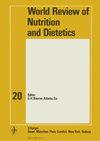土耳其成年妇女每日饮酒量与慢性疾病风险之间的关系
4区 医学
引用次数: 0
摘要
导言:研究表明,在许多国家,饮料能量对总能量摄入的贡献可能会增加疾病的风险。本研究的目的是评估从饮料中添加糖的摄入量与成年人的营养状况、人体测量和血液生化参数之间的关系。材料与方法:本研究设计为一项分析性和横断面研究,对2020年11月至2021年4月期间在土耳其伊斯坦布尔私人饮食门诊申请的100名18-65岁成年女性进行了研究。通过食物频率问卷、饮食习惯问卷、体育活动习惯问卷和饮料消费频率问卷,将个体的人口学特征应用于参与者。结果:研究中女性的平均年龄为31.8岁。研究发现,25岁以上女性从饮料中摄入的总能量为145.3千卡,而且明显更低。所有参与研究的女性都喝茶和咖啡。除功能饮料外,所有饮料的饮酒率在年轻人中都较高。胰岛素抵抗测试结果与饮料中添加糖的总量呈正相关(r=0.297 p=0.043)。结论:较低水平的含糖饮料消费可能导致较低的慢性疾病负担。未来的研究应该探索添加糖饮料的消费模式以及与这种消费的个人层面的联系。本文章由计算机程序翻译,如有差异,请以英文原文为准。
The association between daily beverage consumption and risk of chronic disease among adult women in Turkey
Introduction: It has been shown that the contribution of beverage energy to total energy intake may increase the risk of diseases in various countries. The aim of this study is to evaluate the relationship between the consumption of added sugar from beverages and nutritional status, anthropometric measurements and biochemical blood parameters in adults.
Materials and Methods: This study was designed as an analytical and cross-sectional study and conducted on 100 adult females aged 18-65 who applied to the private diet outpatient clinic in Istanbul/Turkey between November 2020 and April 2021. The demographic characteristics of the individuals were applied to the participants using the food frequency questionnaire, eating habits, physical activity habits and beverage consumption frequency questionnaires.
Results: The mean age of the women in the study was 31.8 years . Total energy intake from beverages in women over 25 years old was found to be 145.3 kcal and significantly lower. All women in the study consumed tea and coffee. The consumption rate of all beverages except energy drinks was found to be higher in the younger adults. A positive correlation was found between the results of an insulin resistance test and the total amount of added sugar from the beverages consumed (r=0.297 p=0.043).
Conclusions: Lower levels of consumption of sugar-sweetened beverages may result in a lower burden of chronic diseases. Future studies should explore consumption patterns of added sugar beverages and individual-level associations with such consumption.
求助全文
通过发布文献求助,成功后即可免费获取论文全文。
去求助
来源期刊

World review of nutrition and dietetics
Nursing-Nutrition and Dietetics
自引率
0.00%
发文量
114
期刊介绍:
Volumes in this series consist of exceptionally thorough reviews on topics selected as either fundamental to improved understanding of human and animal nutrition, useful in resolving present controversies, or relevant to problems of social and preventive medicine that depend for their solution on progress in nutrition. Many of the individual articles have been judged as among the most comprehensive reviews ever published on the given topic. Since the first volume appeared in 1959, the series has earned repeated praise for the quality of its scholarship and the reputation of its authors.
 求助内容:
求助内容: 应助结果提醒方式:
应助结果提醒方式:


